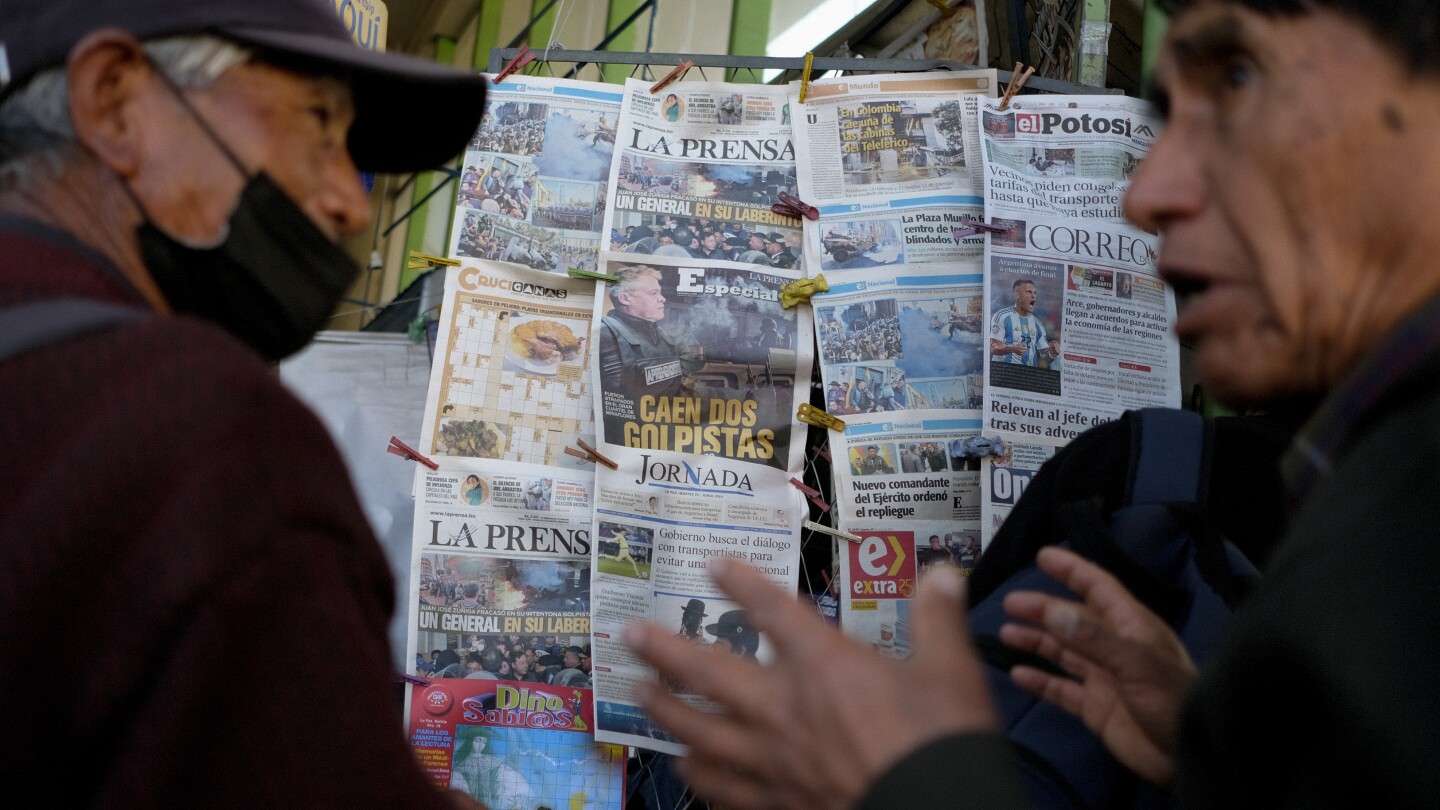LA PAZ, Bolivia (AP) — A plan to stage a coup against Bolivia’s president was not what Gen. Tomás Peña y Lillo was expecting when he entered the military headquarters in La Paz last Wednesday.
The leader of Bolivia’s retired service members said he was surprised to get a call that morning from army chief Gen. Juan José Zúñiga with a request to report for talks about how to advocate for imprisoned soldiers.
It was a coveted meeting, so he rushed over to find Zúñiga surrounded by officers asking for their help in “defending democracy.” Peña y Lillo claims he demurred, but tanks were already rumbling out of the barracks toward the presidential palace.
“It’s a tragicomedy,” Peña y Lillo, now a fugitive wanted for his participation in the alleged coup attempt, told The Associated Press by phone from an undisclosed location.
Like many Bolivians, he said he struggled to piece the story together, recalling how “there had been a lot of talk in the military that (Bolivian President Luis) Arce would hand the government over to Zúñiga” as protests roiled the country over shortages of dollars and fuel.
The retired general’s comments mark another surreal turn in the nation’s efforts to establish the facts of what happened on June 26, when military forces stormed downtown La Paz, stunning the country and spinning off waves of rumors from the mundane to the absurd.
A week after the purported rebellion roiled the South American country that has seen no fewer than 190 coups since its independence in 1825, Bolivians who thought they’d seen it all say they’ve never been more confused.
“This is so strange, so unbelievable,” said Marcia Tiñini, a 58-year-old teacher in La Paz. “First I believed the government and felt solidarity, but now I don’t know what to say.”


